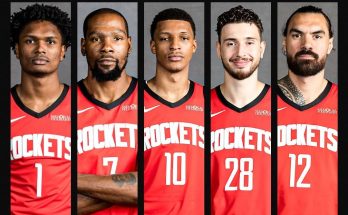Dodgers manager Dave Roberts made a decision that caught many by surprise when he announced that Mookie Betts would be out of the lineup for Saturday’s game against the Milwaukee Brewers. While a day off for a player is not uncommon over a long season, this decision came with greater meaning and purpose. Betts, who has been struggling offensively over the past several weeks, was not injured nor dealing with a personal matter. According to Roberts, the move was entirely about giving Betts a chance to reset—mentally, emotionally, and physically. It was a calculated pause in the relentless rhythm of Major League Baseball, aimed at helping one of the game’s most respected and talented players rediscover himself in the middle of a challenging season.
At the time of the decision, Betts was going through the most difficult offensive stretch of his career. His batting average had dropped to .241, and his OPS had dipped to .688, both career lows for a full season. In the 31 games leading into the All-Star break, Betts was batting just .185, and that slump had carried over into the second half of the season. In the two games immediately following the break, Betts went hitless in 12 at-bats. It wasn’t just a cold streak—it was a prolonged struggle that was affecting both his performance and, as Roberts put it, his mental state.
Roberts observed that Betts was visibly frustrated at the plate. His body language reflected the internal pressure he was putting on himself. It wasn’t simply a case of being unlucky or temporarily out of rhythm; it was clear to Roberts that Betts was pressing, trying too hard to force his way out of the slump. So on Saturday morning, Roberts called Betts and gave him the news: he would be sitting out that night’s game. It wasn’t a punishment or a demotion—it was a breather, a chance to recalibrate. Roberts described it as a mental break, a chance for Betts to watch the game from a different perspective and regroup.
What stood out about the decision was the thoughtful way it was executed. Betts still came to the stadium. He still went through his routines. He took ground balls, hit in the cage, and went through his pregame drills. But he did all this knowing he wouldn’t be playing. That context changed the experience. It allowed him to prepare without the pressure of performance. Roberts emphasized that watching the game from the dugout, being present but not involved, was a different kind of engagement—one that could be beneficial in breaking the mental cycle of a slump.
For Roberts, this move was about more than numbers. He understands that players, even ones as great as Betts, are human. They carry expectations, both internal and external. They feel pressure, they get frustrated, and they sometimes need help finding their way out of a rut. Roberts wanted to give Betts space—not by sending him home, but by letting him be around the game in a less demanding way. It was a strategic pause, not a shutdown.
The slump was especially perplexing because Betts is known for his elite consistency. Over the course of his career, he has been one of baseball’s most dependable players, both offensively and defensively. This season, he had taken on even more responsibility by becoming the Dodgers’ everyday shortstop—an unfamiliar position that he handled admirably. Defensively, he remained sharp, but his offensive numbers had slipped dramatically.
Betts himself has been candid about the difficulties he’s faced this season. He pointed to an illness in spring training that cost him 18 pounds and affected his strength heading into the year. Later, a fractured toe in June further disrupted his rhythm. However, Betts was quick to take accountability and did not use these setbacks as excuses. He acknowledged that he was searching for answers, trying different swing adjustments and working daily in the batting cage to find the right feel. He admitted that the things that used to work for him weren’t working anymore and that the process of rediscovery was unfamiliar territory.
From a statistical standpoint, there were indicators of where the struggles were coming from. Betts had maintained a remarkably low strikeout rate, among the best in the league. His plate discipline and bat-to-ball skills had not disappeared. But his quality of contact had dropped off significantly. His average exit velocity, which had previously ranked among the top hitters in the game, had fallen into the bottom third of the league. That meant he was making contact, but not driving the ball with authority. The result was fewer extra-base hits, fewer run-producing opportunities, and a less impactful presence in the lineup.
Compounding the problem was the fact that other key Dodgers hitters were also scuffling. The trio of Betts, Freddie Freeman, and Shohei Ohtani had carried the offense through the early months of the season, but since June, all three had seen their production dip. As a result, the entire offense had cooled, and the Dodgers were no longer the juggernaut they had been earlier in the year. In that context, Betts’ slump became even more glaring, and the pressure to turn things around only grew heavier.
Roberts didn’t see Saturday’s decision as a long-term change. He said it could be just one night, or possibly two, but the goal was to allow Betts to clear his head and come back refreshed. As it turned out, Betts returned to the lineup on Sunday in the leadoff spot—a change from his usual role hitting second. Roberts explained that this was another strategic tweak designed to help Betts. By moving him to the top of the order, Roberts hoped to shift Betts’ mindset from driving in runs to simply getting on base and setting the table. The leadoff role might alleviate some of the pressure and allow Betts to focus on what he does best: working counts, drawing walks, and finding ways to get on base.
And in Sunday’s game, Betts showed immediate signs of life. He lined a single up the middle in his first at-bat and later scored on a two-run homer by Ohtani. It was a small sample, but a positive one. For a player in Betts’ position, sometimes all it takes is one good swing to feel the momentum shifting. Roberts hoped that by adjusting the external circumstances—giving him a day off, changing his lineup spot—it would help Betts reset internally and regain his confidence.
The situation with Betts is a reminder of how delicate the mental side of baseball can be. Even for a former MVP and perennial All-Star, the game can become a struggle. The swing can feel foreign, timing can be elusive, and the pressure to perform can become overwhelming. Roberts’ approach was to step in with support and understanding, to offer a break rather than a critique, and to show faith that Betts would work his way out of it.
Betts responded in the way you’d expect from a professional of his caliber. He didn’t sulk. He didn’t resist. He showed up, put in the work, and accepted the help being offered. That attitude is part of what has made him such a valuable part of the Dodgers—not just his talent, but his character. He is willing to do the hard work, even when it’s uncomfortable, and he understands that getting out of a slump isn’t just about swinging harder or longer. Sometimes it’s about stepping back, breathing, and seeing the game from a different angle.
In the end, Saturday’s absence wasn’t about missing one game. It was about regaining a season. Roberts made the call not because he had given up on Betts, but because he believed in him. He believed that a brief pause, a small reset, could reignite the engine of one of baseball’s most important players. And if Sunday’s results were any indication, it may have been just what Betts needed.
Time will tell if this marks the turning point in Betts’ season, but the message was clear: the Dodgers are willing to support their stars not only with analytics and coaching but with compassion and trust. They’re willing to listen, to observe, and to make bold decisions when necessary. In doing so, they’re not just managing games—they’re managing people. And for Mookie Betts, that may be the key to finding his way back to being one of the best in baseball.



